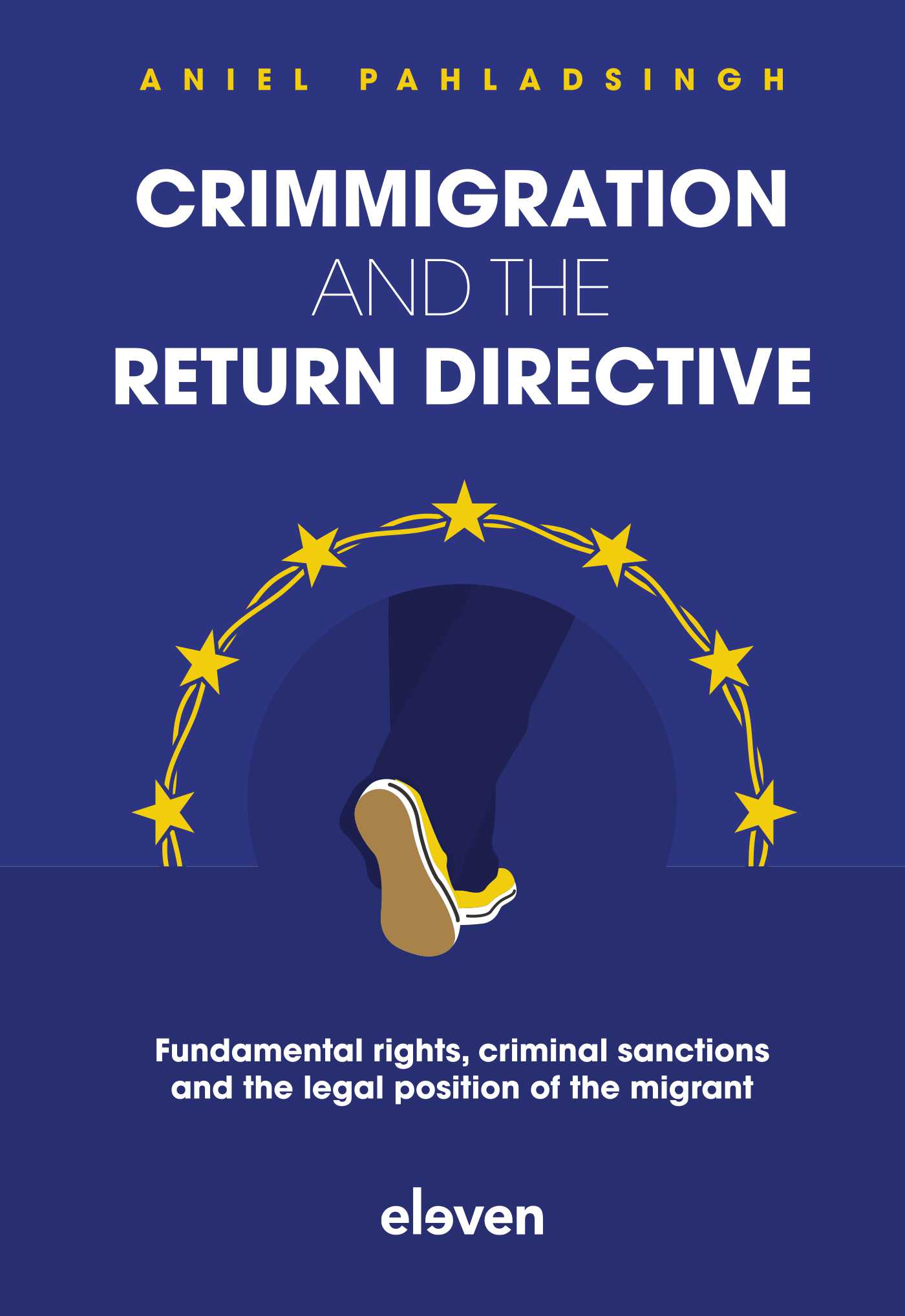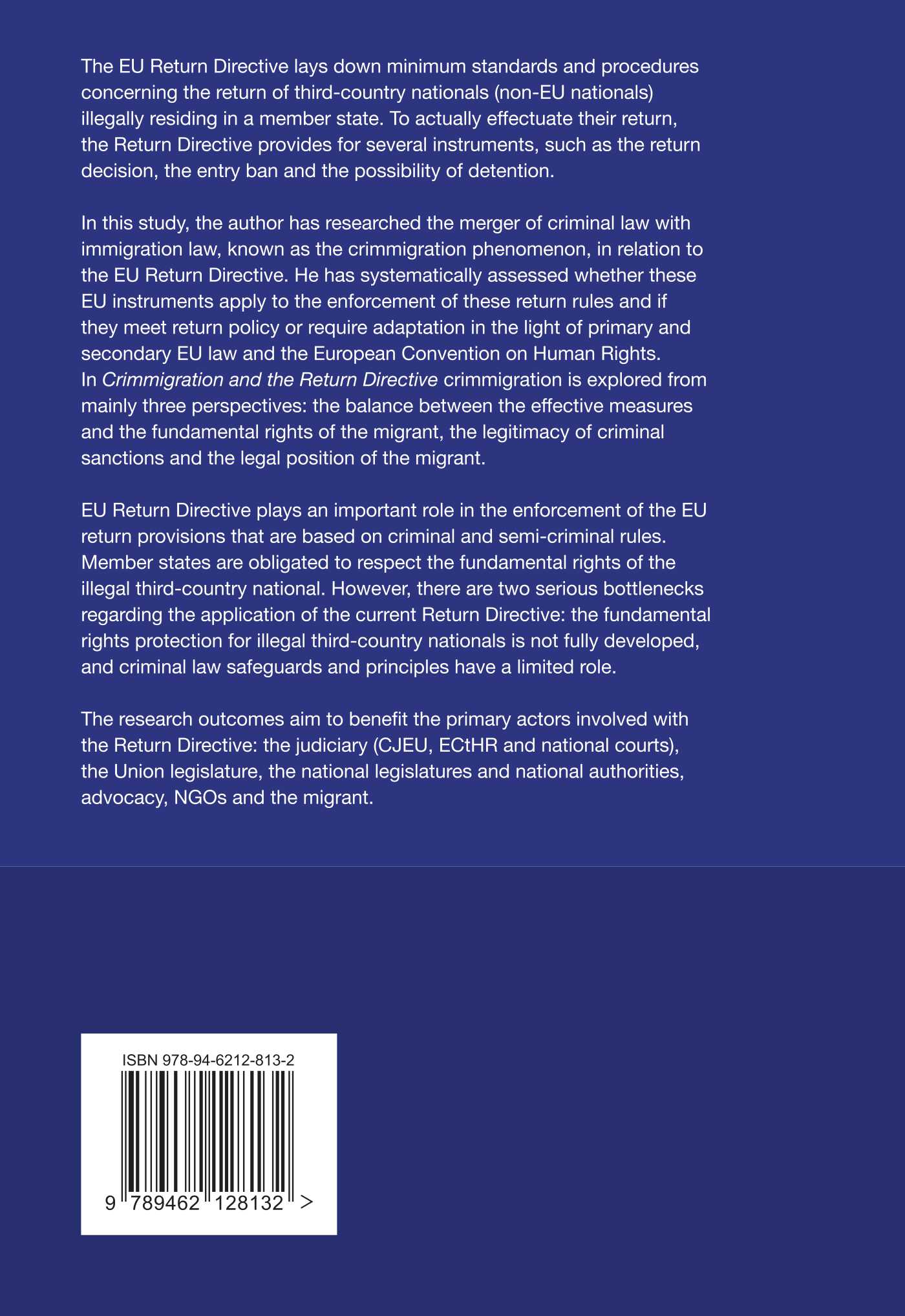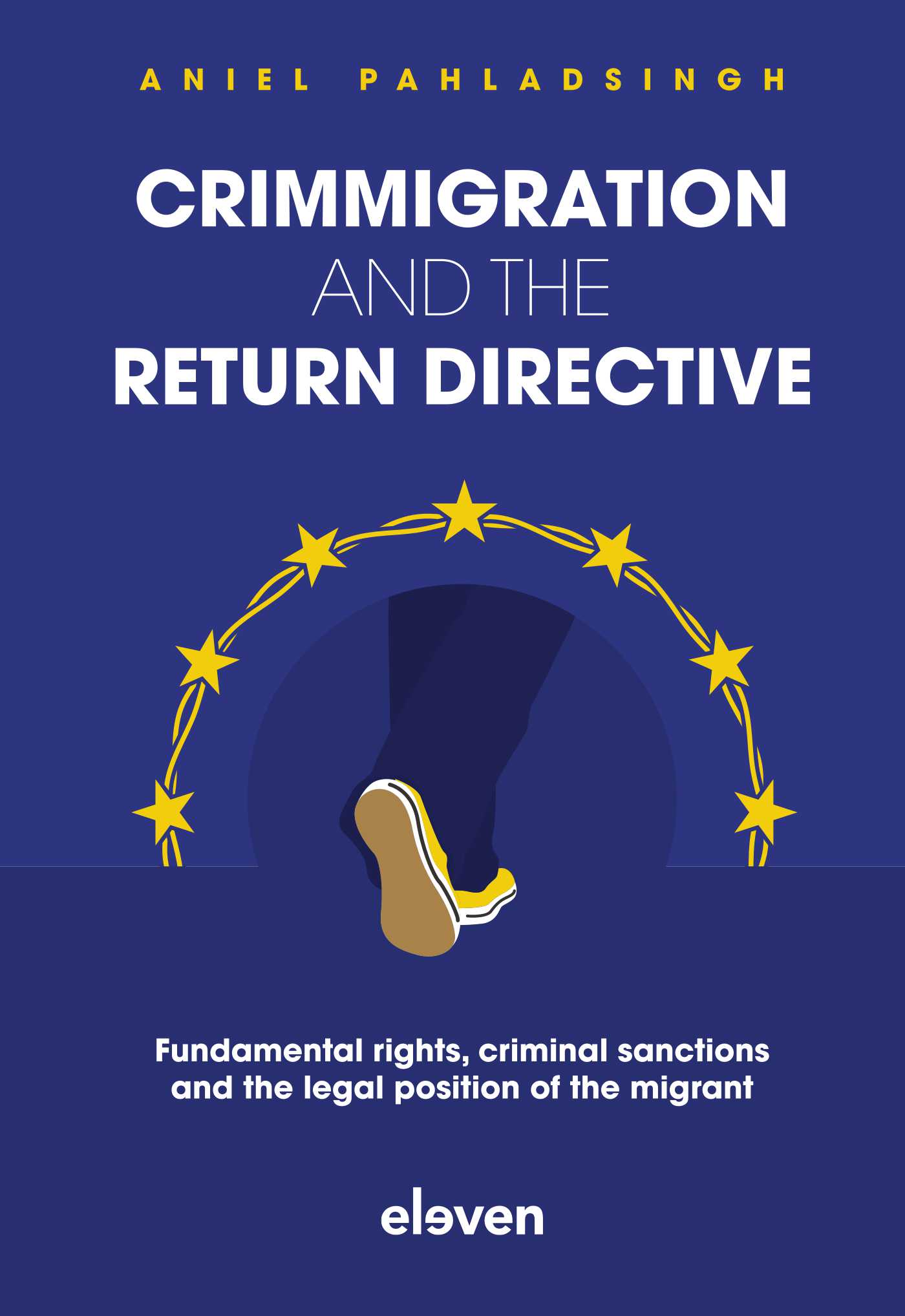- Engels
- Study
- Law
- intern. publiekrecht
- CRIMMIGRATION AND THE RETURN DIRECTIVE
PAHLADSINGH, A.
CRIMMIGRATION AND THE RETURN DIRECTIVE
90,00incl BTW
Vertrouwd sinds 1927
Persoonlijke aandacht en advies
Vanaf 17,50 gratis verzenden NL & BE
Meer dan 150.000 artikelen online
Omschrijving CRIMMIGRATION AND THE RETURN DIRECTIVE
The EU Return Directive lays down minimum standards and procedures concerning the return of third-country nationals (non-EU nationals) illegally residing in a member state. To actually effectuate their return, the Return Directive provides for several instruments, such as the return decision, the entry ban and the possibility of detention.
In this study, the author has researched the merger of criminal law with immigration law, known as the crimmigration phenomenon, in relation to the EU Return Directive. He has systematically assessed whether these EU instruments apply to the enforcement of these return rules and if they meet return policy or require adaptation in the light of primary and secondary EU law and the European Convention on Human Rights. In Crimmigration and the Return Directive crimmigration is explored from mainly three perspectives: the balance between the effective measures and the fundamental rights of the migrant, the legitimacy of criminal sanctions and the legal position of the migrant.
EU Return Directive plays an important role in the enforcement of the EU return provisions that are based on criminal and semi-criminal rules. Member states are obligated to respect the fundamental rights of the illegal third-country national. However, there are two serious bottlenecks regarding the application of the current Return Directive: the fundamental rights protection for illegal third-country nationals is not fully developed, and criminal law safeguards and principles have a limited role.
The research outcomes aim to benefit the primary actors involved with the Return Directive: the judiciary (CJEU, ECtHR and national courts), the Union legislature, the national legislatures and national authorities, advocacy, NGOs and the migrant.
In this study, the author has researched the merger of criminal law with immigration law, known as the crimmigration phenomenon, in relation to the EU Return Directive. He has systematically assessed whether these EU instruments apply to the enforcement of these return rules and if they meet return policy or require adaptation in the light of primary and secondary EU law and the European Convention on Human Rights. In Crimmigration and the Return Directive crimmigration is explored from mainly three perspectives: the balance between the effective measures and the fundamental rights of the migrant, the legitimacy of criminal sanctions and the legal position of the migrant.
EU Return Directive plays an important role in the enforcement of the EU return provisions that are based on criminal and semi-criminal rules. Member states are obligated to respect the fundamental rights of the illegal third-country national. However, there are two serious bottlenecks regarding the application of the current Return Directive: the fundamental rights protection for illegal third-country nationals is not fully developed, and criminal law safeguards and principles have a limited role.
The research outcomes aim to benefit the primary actors involved with the Return Directive: the judiciary (CJEU, ECtHR and national courts), the Union legislature, the national legislatures and national authorities, advocacy, NGOs and the migrant.
Specificaties
- MerkEleven international publishing
- GroepRECHT ALGEMEEN (820)
- Barcode9789462128132
- LeverstatusActief
Reviews
0.0/5.0
Gemiddelde uit 0 reviews
Meest behulpzame reviews
Nog geen reviews geschreven




